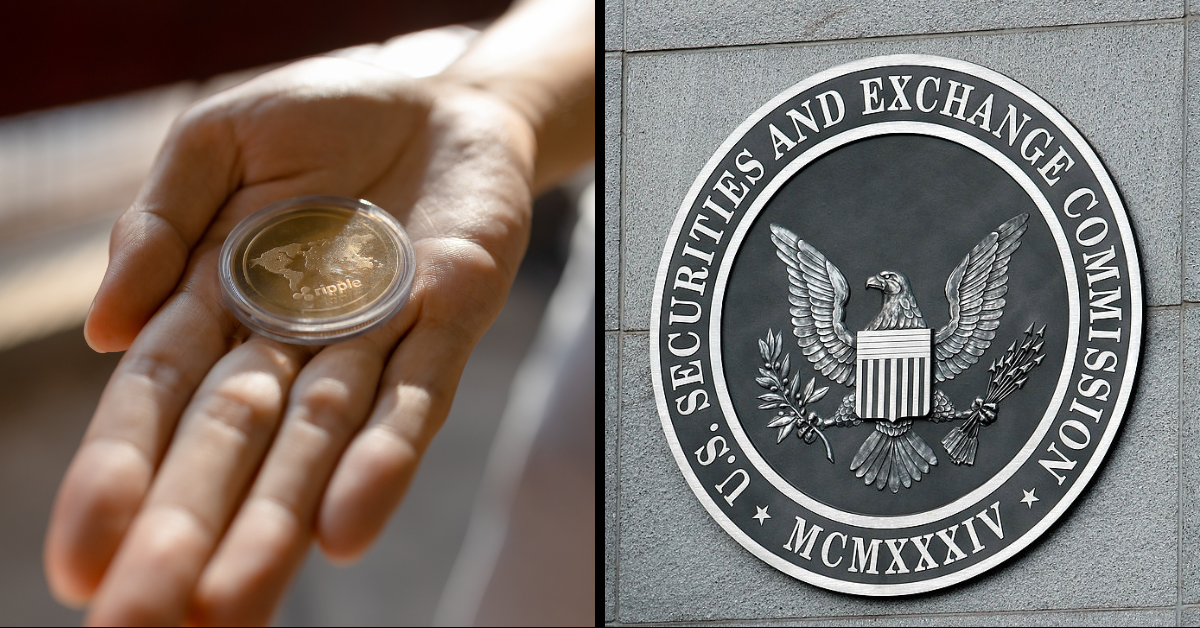The XRP Lawsuit: A Comprehensive Analysis
Since December 2020, the XRP lawsuit has been a focal point of the cryptocurrency world. This high-profile legal battle between Ripple Labs and the U.S. Securities and Exchange Commission (SEC) centers on the classification of XRP as a security. The resolution of this case could profoundly influence the entire crypto industry, impacting everything from regulatory frameworks to market dynamics.
As one of the most significant cryptocurrency legal disputes in history, the XRP lawsuit has ignited discussions about regulatory clarity and the future of digital assets. Investors, regulators, and industry experts are closely following the proceedings, as the outcome may set a precedent for how cryptocurrencies are treated within the global financial ecosystem.
This article offers an in-depth exploration of the XRP lawsuit, delving into its origins, key arguments, possible outcomes, and implications for the crypto market. Whether you're an investor, developer, or simply interested in the legal landscape of cryptocurrencies, this guide aims to provide a comprehensive understanding of the complexities surrounding this landmark case.
Read also:Discover The Vibrant Appeal Of Will County Illinois
Table of Contents
- Background of the XRP Lawsuit
- Key Arguments in the XRP Lawsuit
- Legal Implications of the XRP Lawsuit
- Impact on XRP Investors
- Market Reactions to the XRP Lawsuit
- Regulatory Perspective on Cryptocurrencies
- Possible Outcomes of the XRP Lawsuit
- Expert Opinions on the XRP Lawsuit
- Historical Context of SEC vs. Crypto
- Future of XRP and Ripple
Origins of the XRP Lawsuit
The XRP lawsuit was initiated on December 22, 2020, when the SEC filed a lawsuit against Ripple Labs, its CEO Brad Garlinghouse, and co-founder Christian Larsen. The SEC accused Ripple of conducting an unregistered securities offering exceeding $1.3 billion through the sale of XRP tokens. This legal action has since become a defining moment for the cryptocurrency sector.
How It All Began
Ripple Labs introduced XRP in 2012, positioning it as a digital asset designed to revolutionize international payments by offering fast, low-cost transactions. However, the SEC argues that XRP should be classified as a security under U.S. federal securities laws. Ripple counters that XRP is a utility token, not a security, sparking a legal debate that has captivated the crypto community. The case has now spanned over two years, with both parties presenting their arguments in court.
Central Arguments in the XRP Lawsuit
The XRP lawsuit revolves around two core arguments: whether XRP qualifies as a security and whether Ripple's actions amounted to an unregistered securities offering. These arguments form the crux of the legal battle, with profound implications for the cryptocurrency industry.
Ripple's Defense
- Ripple asserts that XRP is a decentralized digital asset, not a security, emphasizing its utility in facilitating cross-border transactions.
- The company criticizes the SEC for failing to provide clear guidelines for classifying cryptocurrencies as securities, arguing that such ambiguity has hindered the industry's growth.
- Ripple highlights the numerous use cases of XRP, underscoring its role in enhancing global payment systems.
SEC's Position
- The SEC contends that XRP satisfies the criteria of a security under the Howey Test, a legal framework used to determine whether an asset qualifies as an investment contract.
- They argue that Ripple's sale of XRP constitutes an unregistered securities offering, pointing to the active promotion of XRP by Ripple executives as evidence.
- The SEC emphasizes the need for regulatory compliance to protect investors and ensure fair market practices.
Significant Legal Implications
The XRP lawsuit carries substantial legal ramifications for the cryptocurrency industry. A victory for the SEC could lead to stricter regulations for digital assets, potentially altering the landscape of the crypto market. Conversely, a win for Ripple could foster greater regulatory clarity, encouraging innovation and adoption within the industry.
Experts believe the case's outcome will influence how other cryptocurrencies are treated under securities laws. It could also impact the development of new digital assets and the broader adoption of blockchain technology, shaping the future of decentralized finance.
Effects on XRP Investors
XRP investors have been closely monitoring the lawsuit, as its resolution directly affects the value and status of their holdings. In the early stages of the litigation, the price of XRP dropped significantly due to uncertainty about its classification as a security. This volatility has prompted many investors to reassess their strategies.
Read also:Ekrem 304mamo287lu A Beacon Of Change In Turkish Politics
Key Considerations for Investors
- Investors are encouraged to stay informed about the lawsuit's developments, as updates can have immediate effects on XRP's market performance.
- Diversifying portfolios is recommended to mitigate risks associated with the lawsuit's unpredictable outcome.
- For those with significant XRP holdings, seeking legal advice may be prudent to better understand potential implications.
Crypto Market Responses
The crypto market's reaction to the XRP lawsuit has been mixed. While some exchanges delisted XRP due to regulatory concerns, others continued to support the token, reflecting the industry's broader debate on the role of regulation in cryptocurrency markets. According to data from CoinMarketCap, XRP's market capitalization has experienced significant fluctuations since the lawsuit began. Despite these challenges, XRP remains one of the top cryptocurrencies by market capitalization, underscoring its resilience.
Regulatory Challenges in Crypto
The XRP lawsuit underscores the urgent need for clearer regulations in the cryptocurrency space. Regulatory bodies like the SEC and Commodity Futures Trading Commission (CFTC) are working diligently to establish frameworks for classifying and regulating digital assets. However, several challenges remain.
Key Challenges in Regulating Cryptocurrencies
- Defining the distinctions between securities, commodities, and utility tokens remains a complex task, requiring nuanced legal interpretations.
- The decentralized nature of cryptocurrencies poses additional challenges, as traditional regulatory approaches may not be fully applicable.
- Striking a balance between investor protection and fostering innovation is critical to ensuring the long-term viability of the crypto industry.
Potential Outcomes of the XRP Lawsuit
The XRP lawsuit could result in various outcomes, each carrying distinct implications for the crypto industry. These potential scenarios highlight the case's transformative potential.
Outcome Scenarios
- Ripple Wins: If Ripple prevails, XRP would be classified as a utility token, likely leading to increased adoption and greater regulatory clarity. This outcome could bolster confidence in the crypto market and encourage further innovation.
- SEC Wins: Should the SEC succeed, XRP would be treated as a security, potentially affecting its market value and adoption. This result could lead to stricter regulations for other cryptocurrencies, reshaping the industry's landscape.
- Settlement: A compromise between the parties could avoid a prolonged legal battle, offering a middle ground that addresses regulatory concerns while preserving XRP's utility. Such an outcome might provide a template for resolving similar disputes in the future.
Insights from Industry Experts
Industry experts have shared diverse perspectives on the XRP lawsuit, reflecting the case's complexity and far-reaching implications.
Views from Legal Experts
- Some legal experts argue that the SEC's case lacks merit, as XRP operates as a decentralized asset with numerous practical applications beyond investment.
- Others contend that the SEC's position is justified, pointing to the involvement of Ripple executives in promoting XRP and the need for regulatory enforcement to safeguard investors.
Perspectives from Crypto Analysts
- Crypto analysts stress the importance of regulatory clarity for the industry's growth, emphasizing that well-defined rules can enhance investor confidence and foster innovation.
- However, they caution against over-regulation, warning that excessive controls could stifle the creativity and potential of the crypto space.
A Broader Regulatory Context
The XRP lawsuit is part of a larger trend of regulatory actions targeting cryptocurrencies. The SEC has previously pursued cases against other digital assets, such as Telegram's Gram token and Kik Interactive's Kin token. These cases highlight the ongoing tension between regulators and the crypto industry as they strive to create a balanced regulatory framework. The XRP lawsuit could become a landmark case in this evolving dialogue.
The Future of XRP and Ripple
Regardless of the lawsuit's outcome, XRP and Ripple are poised to remain influential players in the digital payments sector. Ripple's focus on enhancing cross-border payments and promoting financial inclusion aligns with global trends toward digitization and financial innovation. As the crypto industry continues to grow, the resolution of the XRP lawsuit will undoubtedly shape the path forward for Ripple and the broader cryptocurrency ecosystem.
Conclusion
The XRP lawsuit marks a pivotal moment in the history of cryptocurrencies, with its resolution set to have lasting effects on how digital assets are regulated and perceived by the financial community. Investors, regulators, and industry participants must remain vigilant and informed about the case's developments to navigate the evolving crypto landscape effectively.
We encourage you to share your thoughts on the XRP lawsuit in the comments section below. Additionally, explore other articles on our site for further insights into the world of cryptocurrencies and blockchain technology.


